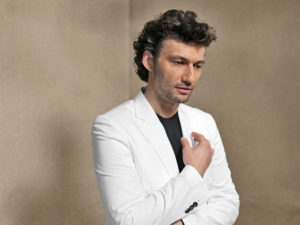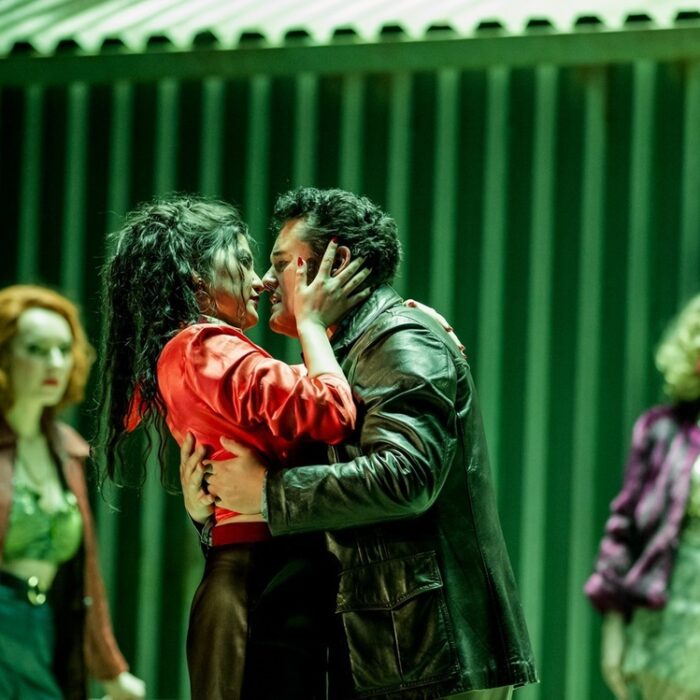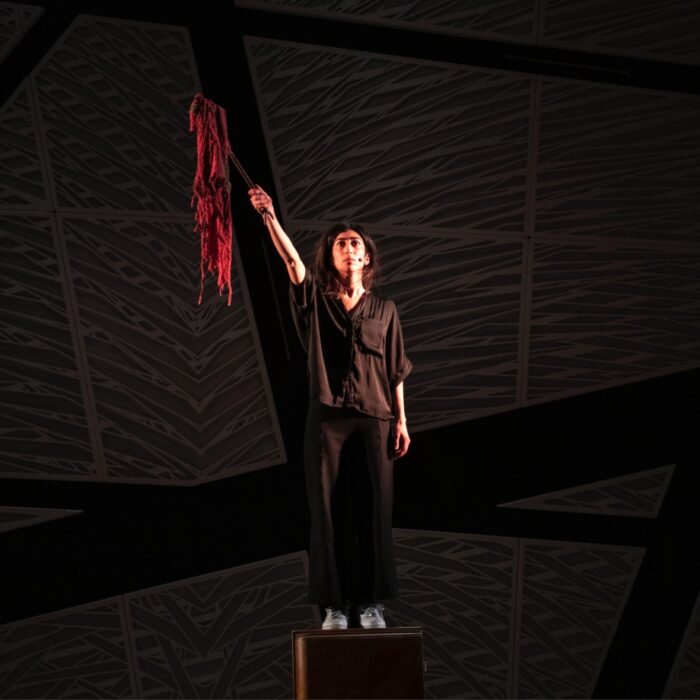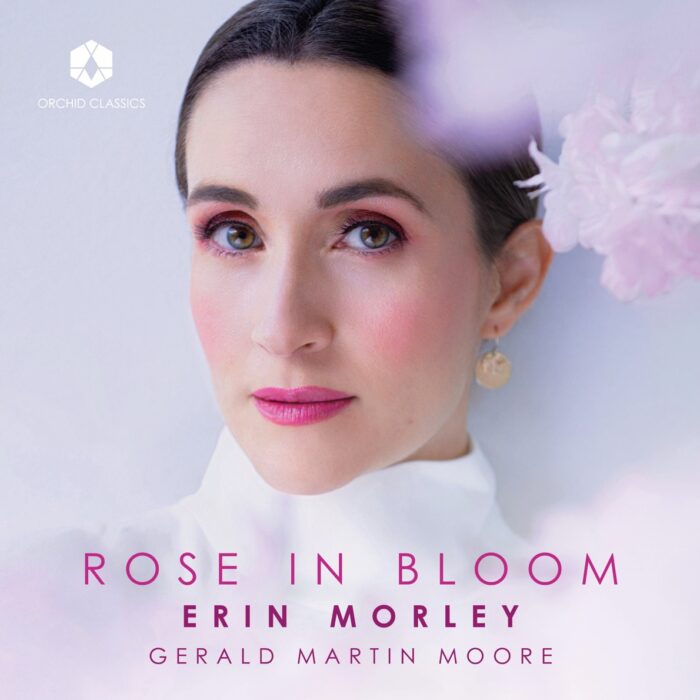
Barbican Theater 2018 Review: Jonas Kaufmann Is Otherworldly In Strauss’ ‘Four Last Songs’
By Lois SilversteinHe was wonderful.
He sang with artistry. He sang with heart. He made you feel as if you understood even more than the words, as if you understood worlds when mainly you were listening to a foreign tongue, written by a composer of 70 years before, writing from within a worldview that hardly now exists.
Jonas Kaufmann was at the Barbican Theater, London, fulfilling the commitment he made for a concert he was supposed to give in 2017 when he had to cancel for health reasons. Did anybody fear he wouldn’t show up again? Of course.
And here it was. And him.
In a concert conducted by Joachim Rieder with the BBC Symphony Orchestra, Kaufmann sang after both the Overture to “Schauspieler,” by Erich Korngold, written when the composer was 14, and again after a moving rendition of “In the South” by Edward Elgar, all romantic pieces.
German Romanticism Par Excellence
Then the “curtain rose” on German Romanticism “par excellence,” and in his usual, almost casual yet highly well-mannered way, Kaufmann took the stage and gave us the gifts of music and intimacy. The Barbican hardly seemed like the venue it is, offering multiple artistic experiences at the same time, for many people who came for each of them. In the Theater, instead, it seemed as if everyone were here for the same reason, to ride the crest of such exploration, and just for us. Kaufmann was expected to sing the “Four Last Songs,” but in the program, the first songs were listed with texts, though without acknowledgment of who would be performing them. Many were surprised when he “suddenly” appeared on stage and began. What a treat. More than the Last Songs then? Wunderbar! And so it was.
He began with “Ruhe Meine Seele,” his singing smooth, present, and elegant with practiced articulation. His phrasing of “und vergiss/Was dich bedroht!” brought us into a personal world, where the singer’s private attempt to soothe himself become a call to us too. A call to stop, consider, let the storms of pain be released so we can feel free, feel peace. Beautiful, thoughtful, he didn’t wait until we were ready for him: he was ready for us, to tell us, to bring us along. Quiet, pensive, we went willingly to believe it was not only his story, but perhaps ours as well.
With “Freundliche Vision,” the tenor drew before us a vision of hearth and “ein weisses Haus in grunen Buschen,” where he could be at peace with “Einer,” one who loved him. It was exquisite. He paused and let it soak in us, as it arose for him. At first hearing, we were alone there, the vision linking us and our associations to such a world, such freedom. What was so extraordinary was five or ten minutes before, we were pleased to be hearing Kaufmann render these songs, and then, in a countryside not only seeking peace but feeling it, brimming over with settling conviction. He conjured the world up with quiet syllables, patient location.
“Befreit” saw passion rise alongside persuasion and intimate reminders of the happiness he and his beloved shared. In singing, Kaufmann gave everything, just as the line said, “Du schenktest mir dein ganzes Leben (you gave your whole life to me, and I shall give it back to them… ),” It was recognition that we cannot keep such peace, we cannot own it.
By the final selection of part one of the concert, he sang “Heimliche Aufforderung,” a compelling song that it seemed to be speaking. That’s how direct it was. Here he became as gracious as the one with whom he is addressing – kind, careful, willing to let any dissatisfaction fade so that he could continue embracing, albeit tenderly the beauty and grace of what they shared, of what love and life in nature, in life itself, offered up.
Taking Us On A Transcendent Journey
Part two brought us the anticipated “Four Last Songs.” Usually sung by a soprano, Kaufmann once again took on the work, whether written only for soprano or not, whether written by Strauss to be sung in sequence or not. “Fruehling” begins with a long and sonorous, full breath-long stanza/s. On its heels, he varied the up and down with low pitch and high in a complicated and sinuous line. We hung on close, wondering what would come next. In September, what had been held in abeyance until then – the blending of the orchestra and Kaufmann’s volume – did not blend so well. The orchestra overpowered him in the low notes and some of his expressive finesse was buried. The same happened with pianos, such as “Langsam tut er die,” somehow leaving us feeling left out. Kaufmann didn’t fight it. Trying to climb out of the hole of submersion, he maintained his control and fostered a sense of vulnerability because the threshold of sound was so muted. Did Rieder know? It was hard to tell. Perhaps it was just a different choice at the moment.
By “Beim Schlafengehen,” however, balance seemed restored, and his cri de coeur, “Hande, lass von Allen Tun,” was crystal clear. In this poem of Hermann Hesse, the violin solo picked up the cry. Moving and compelling, the sweet legato here blended with the final stanza of the song, which called for what the soul needed and cried for. From Kaufmann to the violin, and from the violin back to Kaufmann.
The final song, the famed “Im Abendrot,” carried the contours Kaufmann shaped to a beauteous completion. It was an elegy pure and simple, recognizable and poignant, while also chilling, cautious, and inevitable. The song sank deep, the words never ponderous or overly-message laden, though they carry that truth. And the final question – “Ist dies etwa der Tod (Is this perhaps death)? – this weariness we feel of journeying, of trying, of keeping close? Are we ready to give it all up? Ready? Perfect. The end of all the movement and the stillness in the auditorium was truly palpable. Yes, to give it up, all of it, even this singing, even this longing not to give the singing up. He held that tone, he waited, he patiently spelled it out. It was ravishing.
Bouquets of roses followed the silence continuing for at least a minute when he came to an end, and after much applause, Kaufmann returned with Rieder, and offered the perfect encore, Strauss’s, “Morgen.” What could be more than fitting after the long completion of farewell? And perhaps more skillfully rendered because of it. The beginning again. Life moves full cycle. And then, it was done.
He brought us back home.


